When we talk about teen romance and rejection, it’s most often girls who have to say ‘no’ constantly. We teach girls about harassment, and inappropriate behavior from the opposite sex, and that “No” is a full sentence. But what about the times when the roles are reversed?
This story involves a teen boy, a girl who wouldn’t take ‘No’ for an answer, their moms who had a weird wish for them to date, and the dad who stood up for his son. The relationship dynamic between these people changed one day when the mother forbade the son to go to a party until he apologized for rejecting the said girl.
A teen’s mom didn’t let him go to a party until he apologized to a girl he rejected publicly at school

Image credits: Getty Images / Unsplash (not the actual photo)
But his dad disagreed and sided with him; he listened when the son told him that the girl has been harassing him


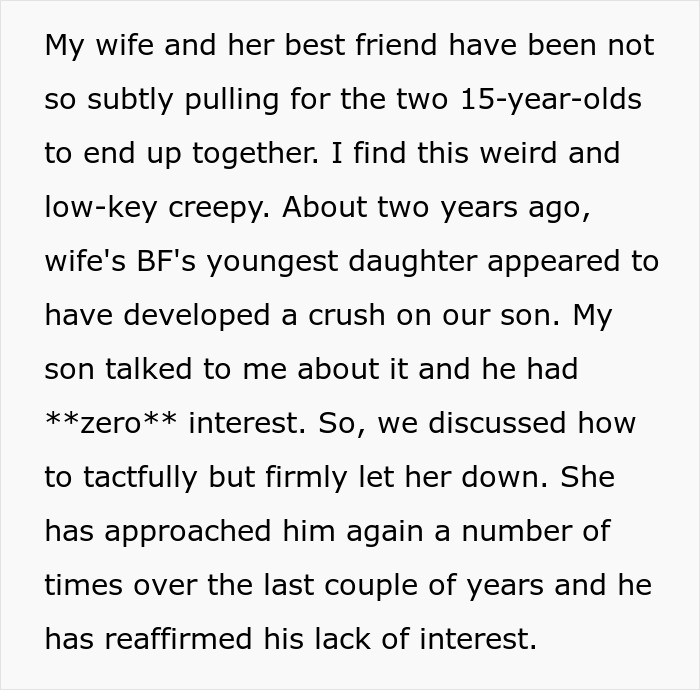
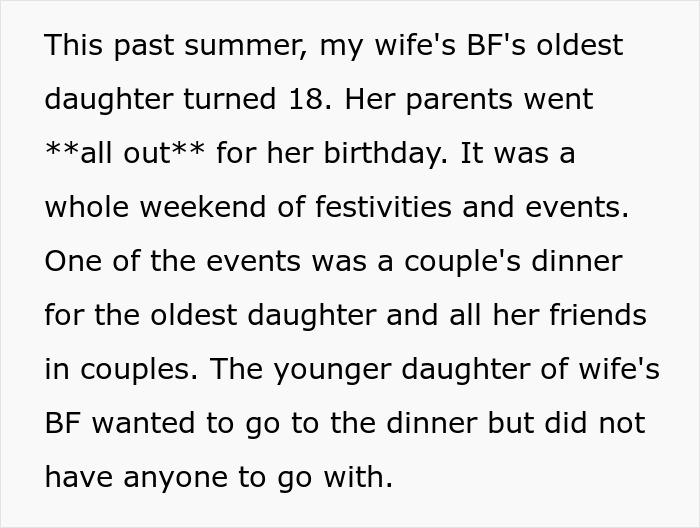
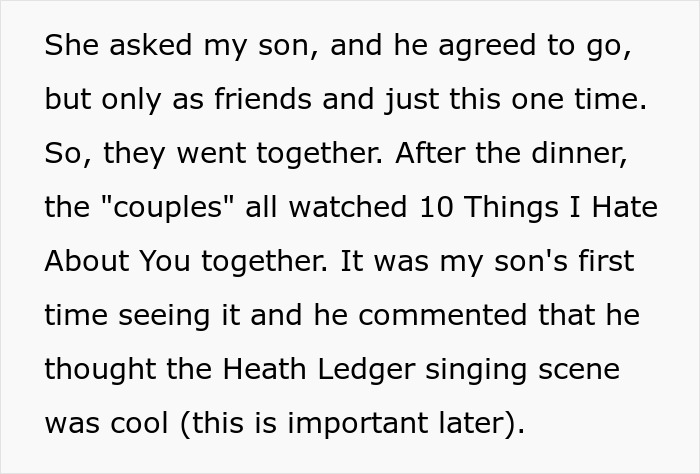
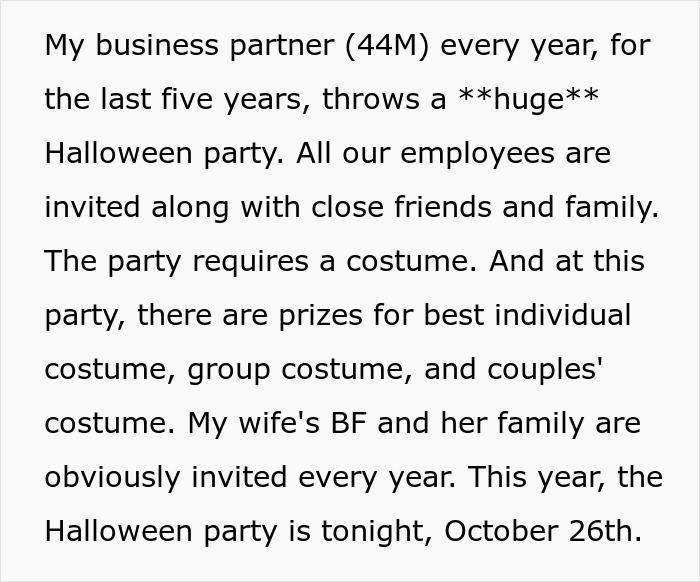

Image credits: XAVIER PHOTOGRAPHY / Unsplash (not the actual photo)
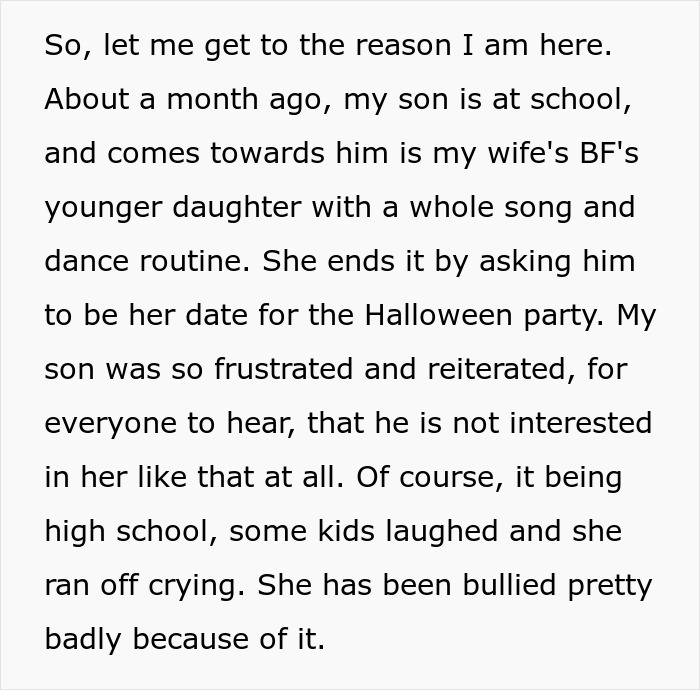
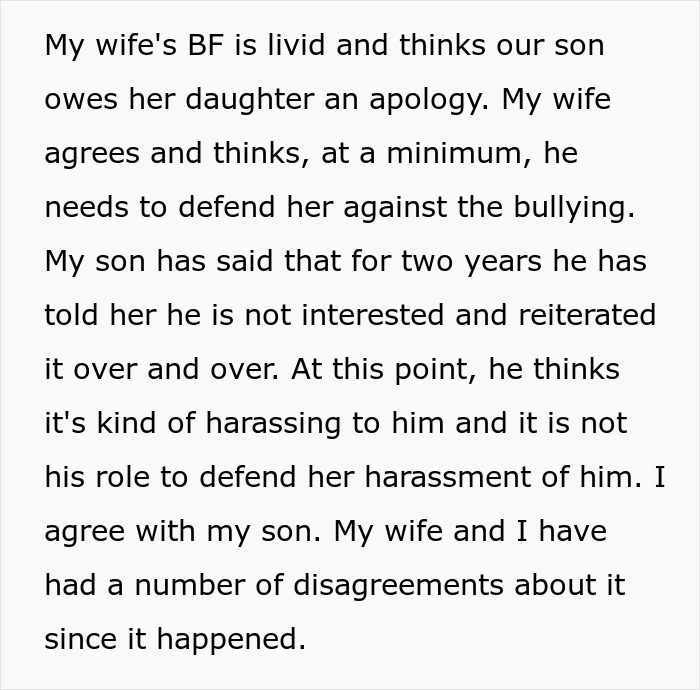
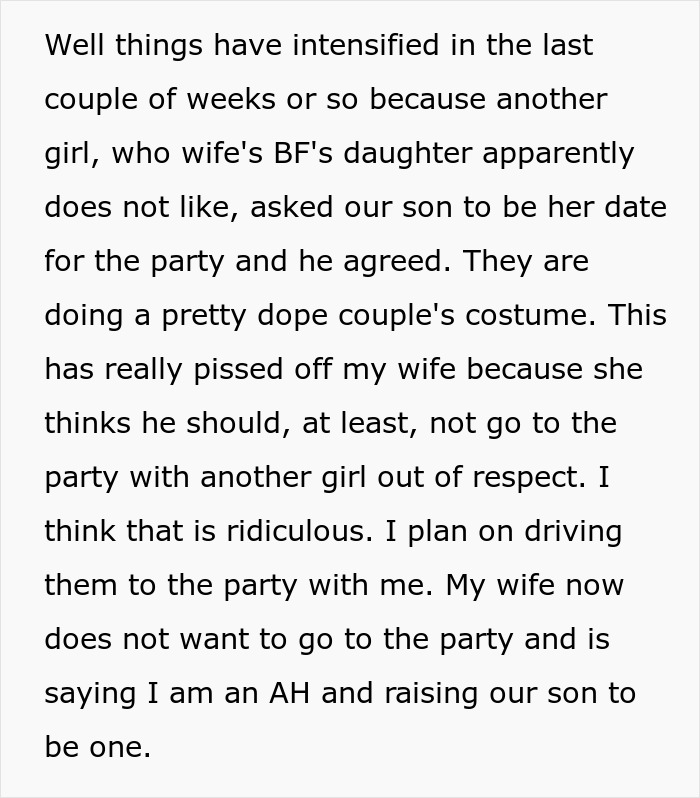

Image credits: Miserable-Article-44
Men experience harassment and violence but are less likely to address and talk about it

Image credits: Curated Lifestyle / Unsplash (not the actual photo)
Gender stereotypes are hard to get out of our heads. Many of us might still think that harassment, be it verbal, physical, or sexual, doesn’t happen to men or happens too seldom to be significant. However, statistics and stories like this one paint a very different picture.
Men do experience harassment, and we ought to talk about it more. In a 2024 #MeToo survey, 42% of male respondents said they had experienced sexual harassment or assault at least once in their lives. In fact, 18% of the men surveyed said this happened for the first time before the age of 18.
What’s more, men are less likely to report such harms and seek formal treatment for them than women. Many fear their self-image, masculinity, and sexual orientation will be questioned if they do. One NIH study found that men usually react to harassment with passivity, acceptance, or minimization.
Teaching teens about consent and rejection is crucial to avoid misunderstandings like these
That’s why it’s important to teach teens that harassment doesn’t only happen to girls and women. The experts at Every Body Curious, an educational series about sexuality for the youth, write that if we want teens not to become perpetrators of any kind of unwanted advances, we need to teach them to take rejection well.
There are verbal and nonverbal cues that teenagers (and adults as well!) should look out for. A simple “No” can be a verbal cue, but changing the topic or making an excuse also counts. Recognizing nonverbal cues can be a little more difficult.
According to the SA Centre of Edmonton, nonverbal cues of rejection include “leaning in, smiling, eye contact, laughing, touching, mirroring body language.” Even in cases when a person says “Yes,” it’s important to listen to how they’re saying it; they might be unsure or just being playful.
In truth, it can get confusing, but body language and tone of voice usually tell you all you need to know. And while these points mostly pertain to physical intimacy, they can be used in the context of any unwanted advances as well.
Parents should limit their involvement in their teen’s love life
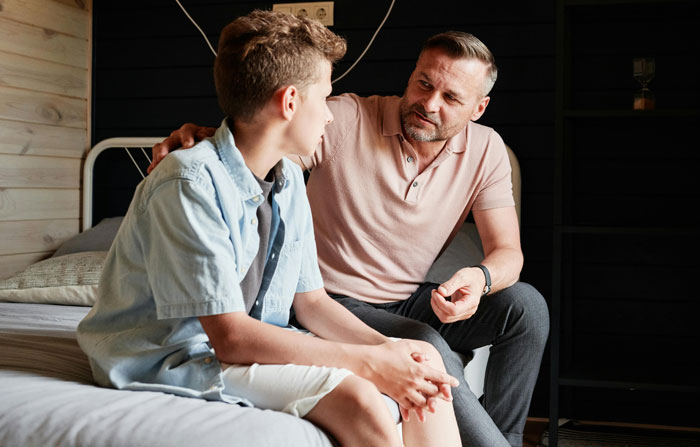
Image credits: Julia M Cameron / Pexels (not the actual photo)
What many people found weird in this story was how the two mothers were pushing for their teens to be together. While it’s a nice sentiment in theory, it doesn’t really take into account what both teens want. If the daughter of the OP’s wife’s BFF is more impressionable, she might have this idea in her head that she and the son need to be dating.
As a teenager, there’s probably nothing worse than your mom meddling in your romantic relationships. “Most teenagers are reluctant to share much about their relationship with their parents, and parents often feel unsure of whether to probe and how much space to offer,” Dr. Tori Cordiano, Ph.D., writes.
What parents should do is similar to the approach the dad in this story had. As an NP and teen risk prevention researcher, Dr. Jennifer Salerno writes that parents should encourage self-love, prioritize boundaries, and set expectations.
“Approach it with love and care, and you’ll find it can be a powerful conversation that strengthens your relationship,” Salerno claims. Playing a matchmaker for your kid is probably not recommended.
“Consent goes both ways,” people pointed out double gender standards by the mom

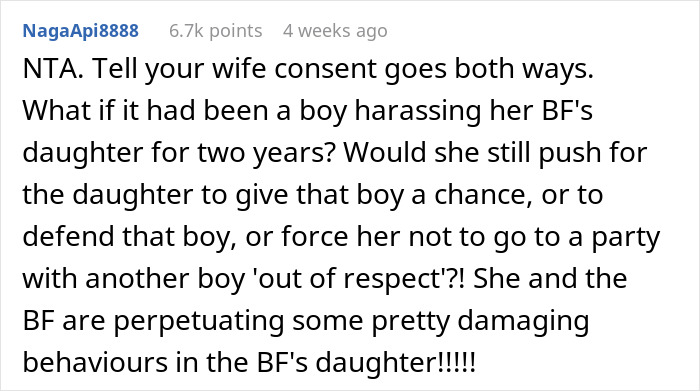

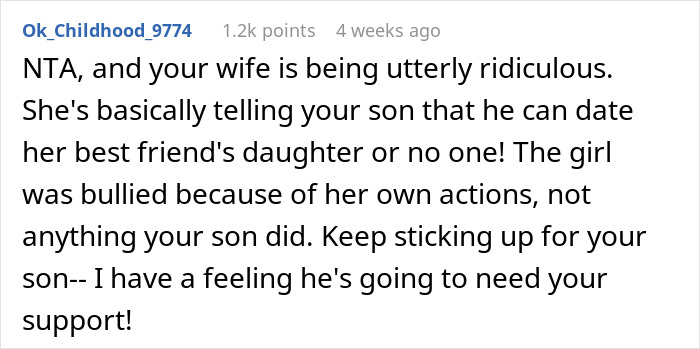

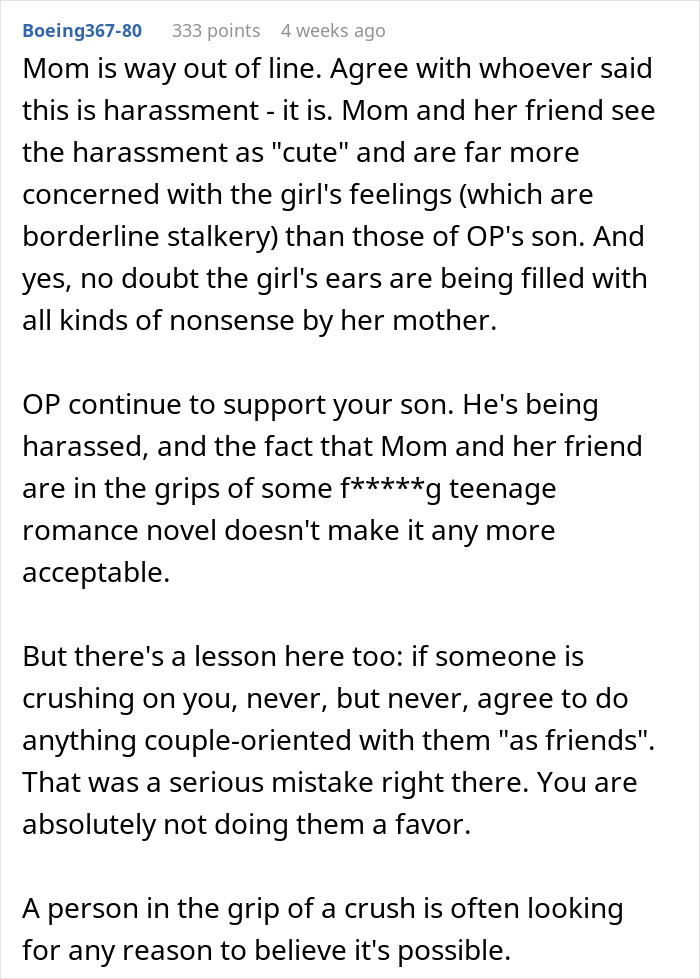
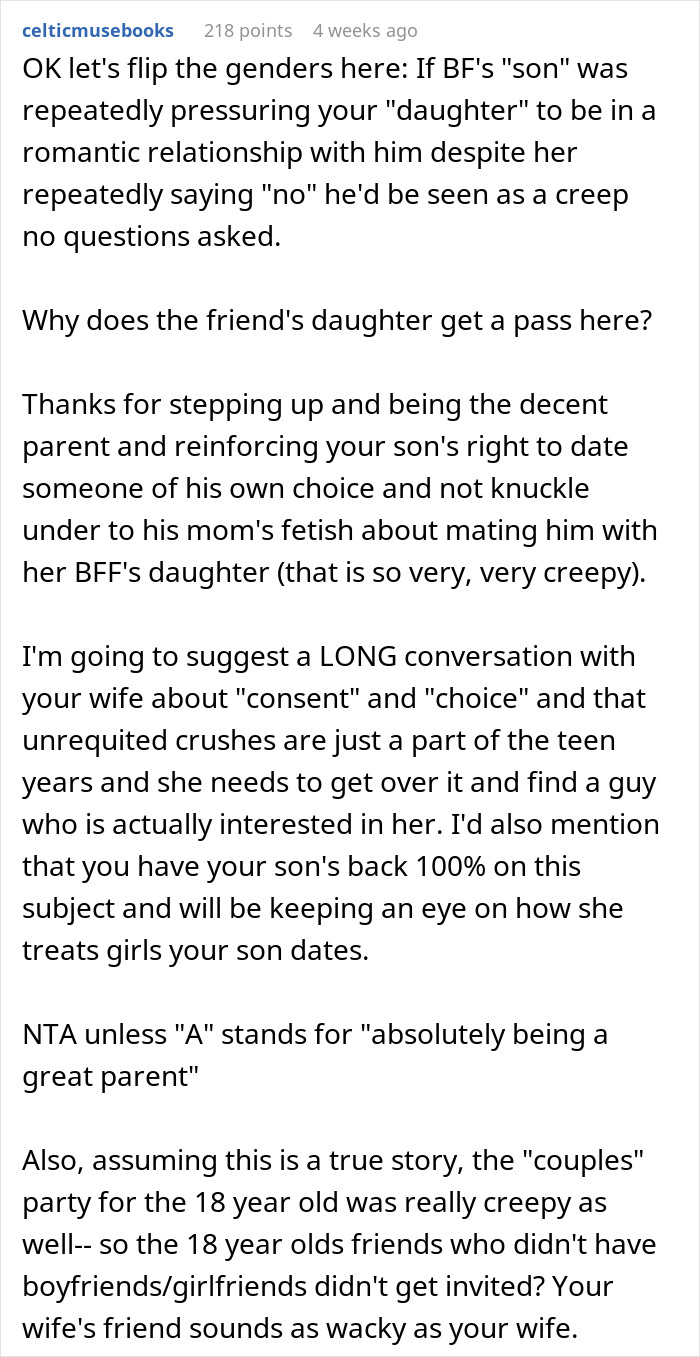
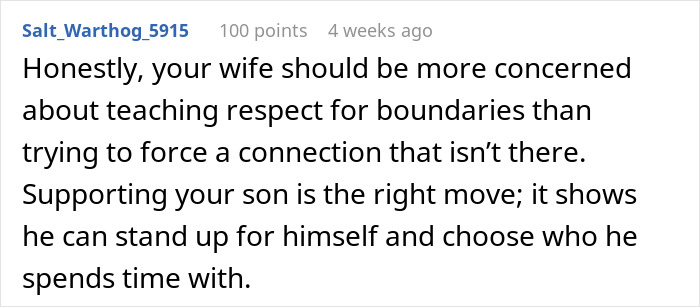
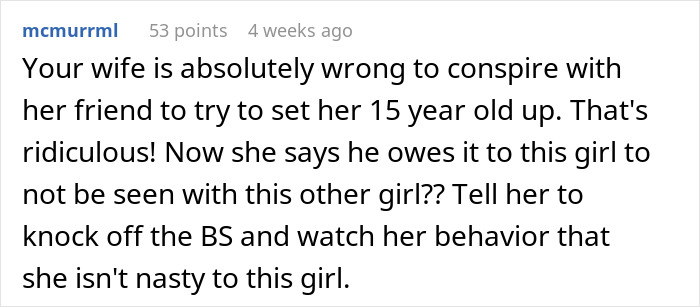

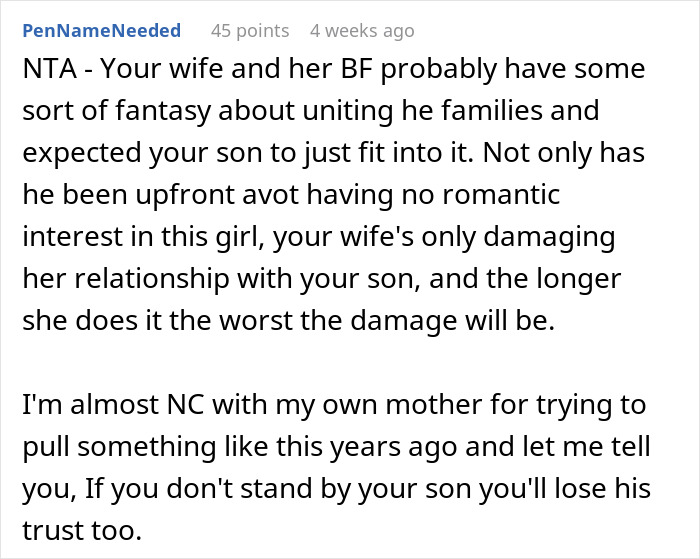

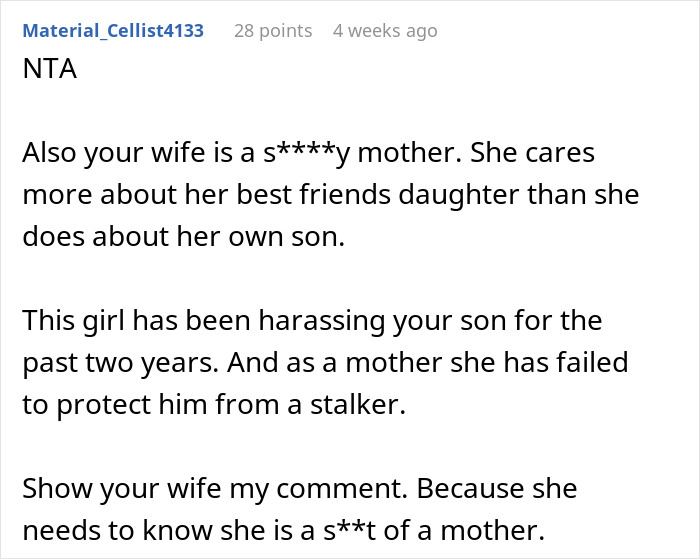
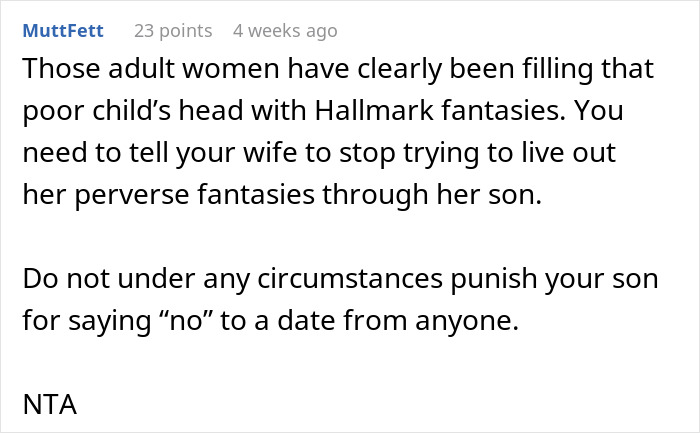
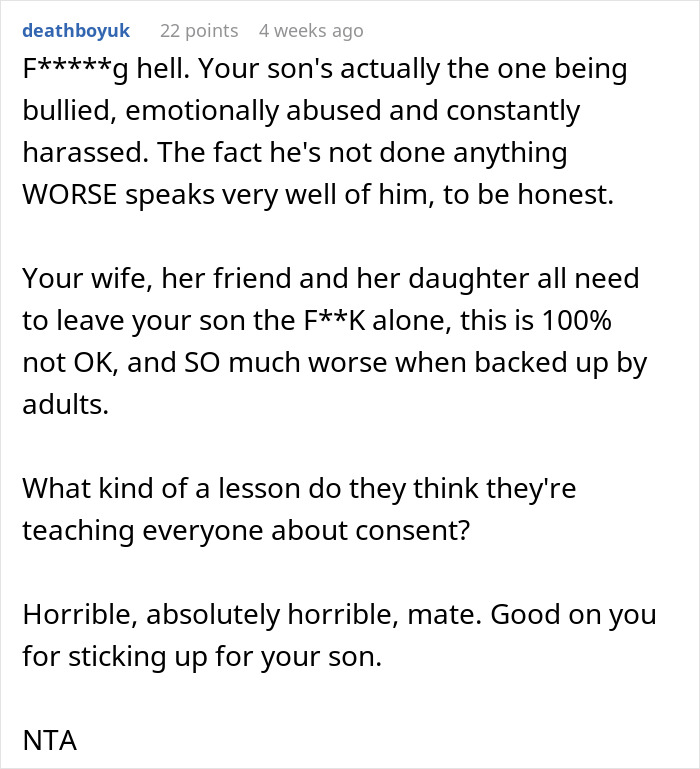
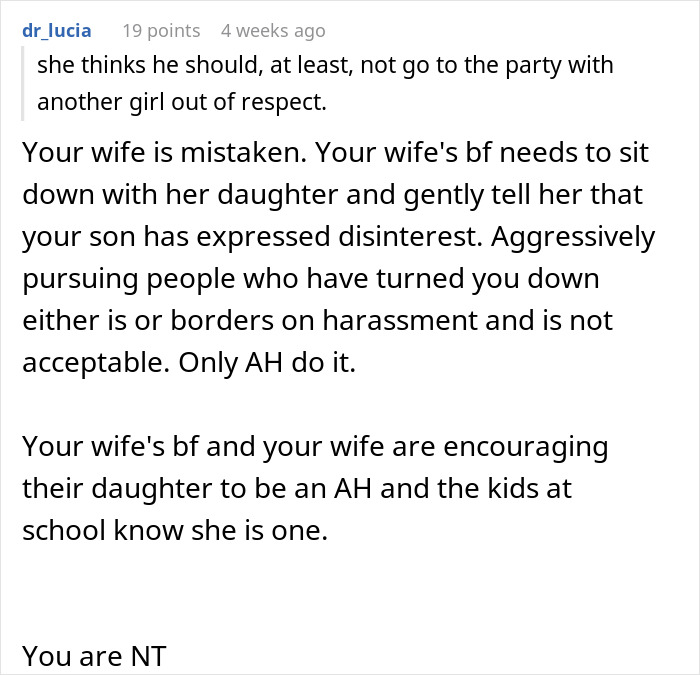

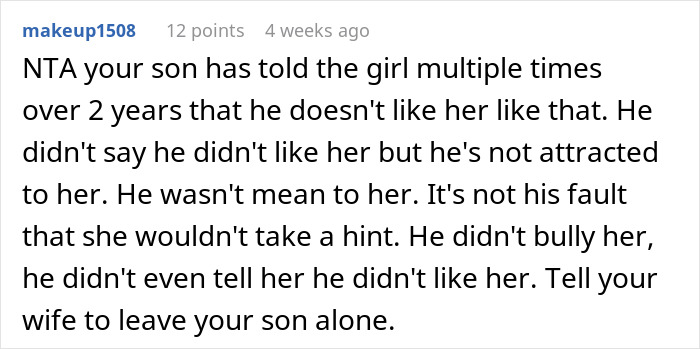

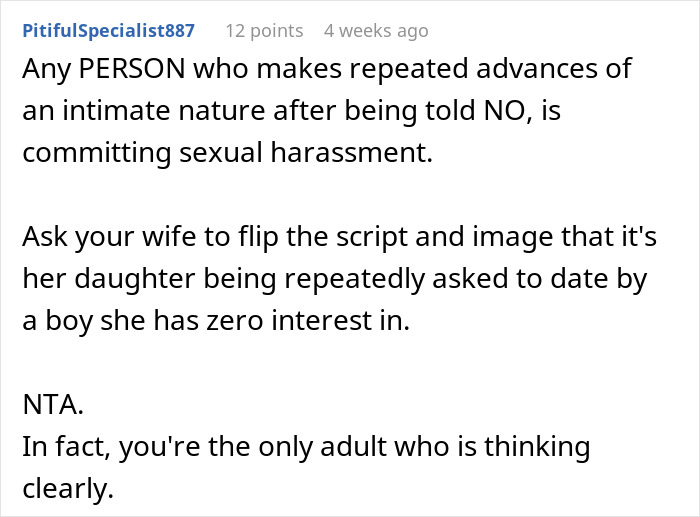
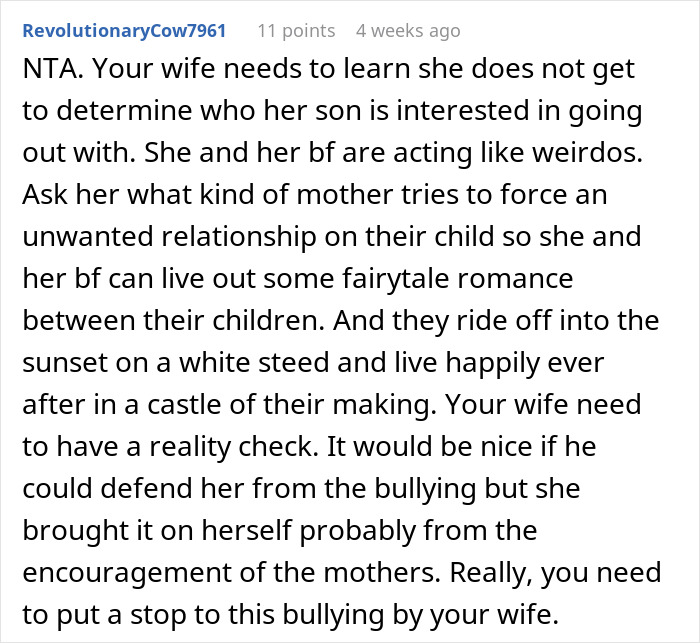
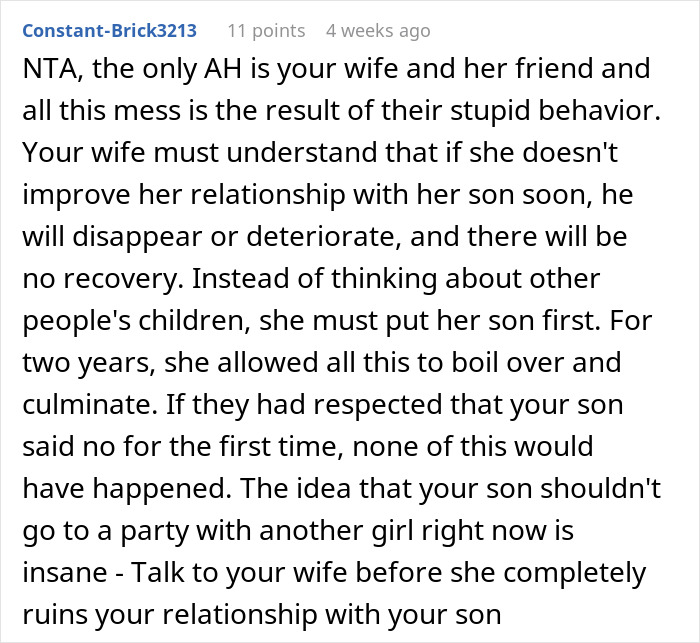

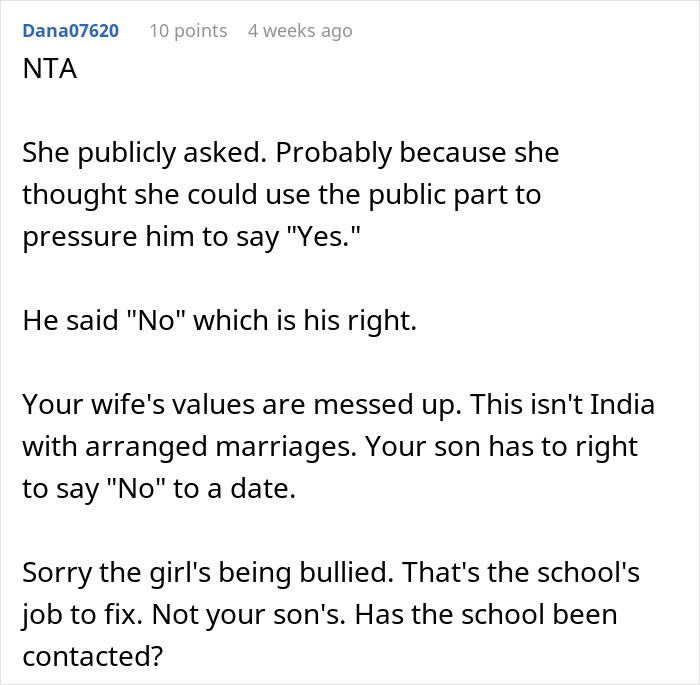
However, some people believed the teen shouldn’t have humiliated the girl publicly and was a jerk for that


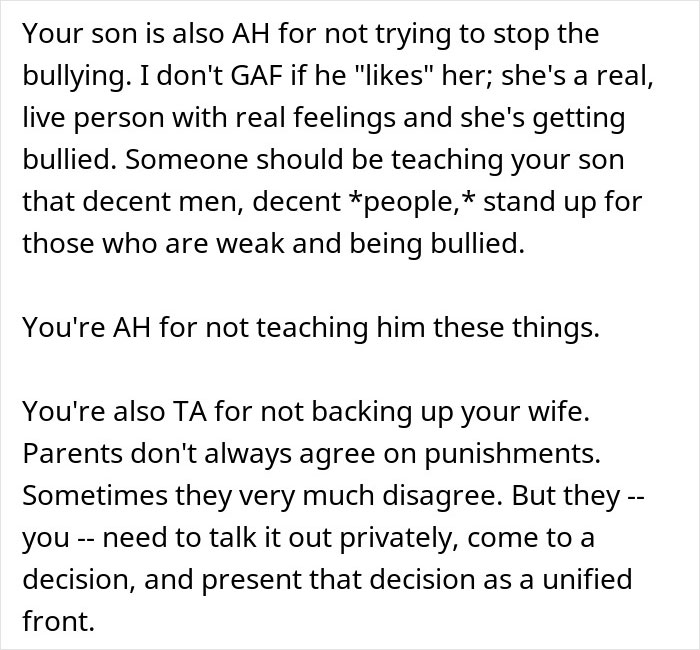
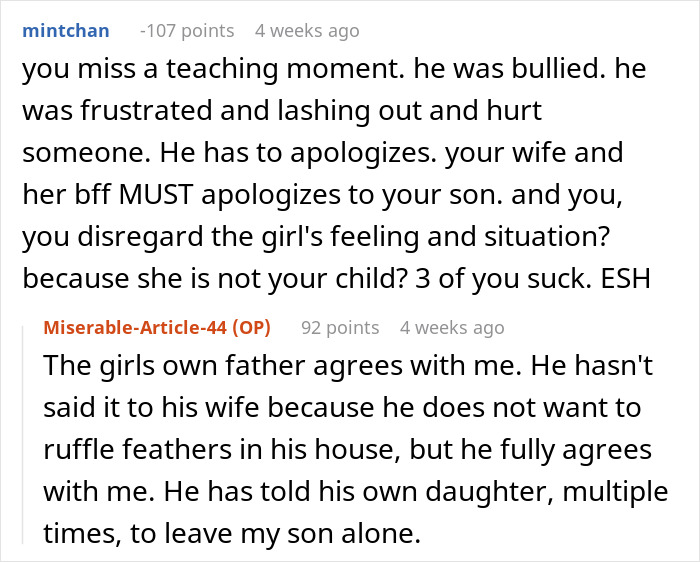
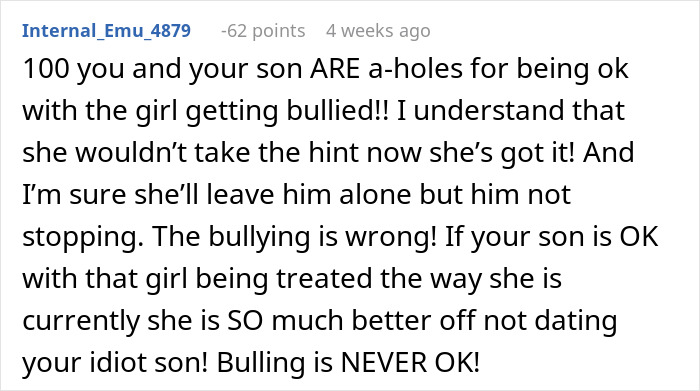

A few weeks later, after the school got involved, the mother and son talked it out and she’s now 100% on his side

Image credits: Mikhail Nilov / Pexels (not the actual photo)
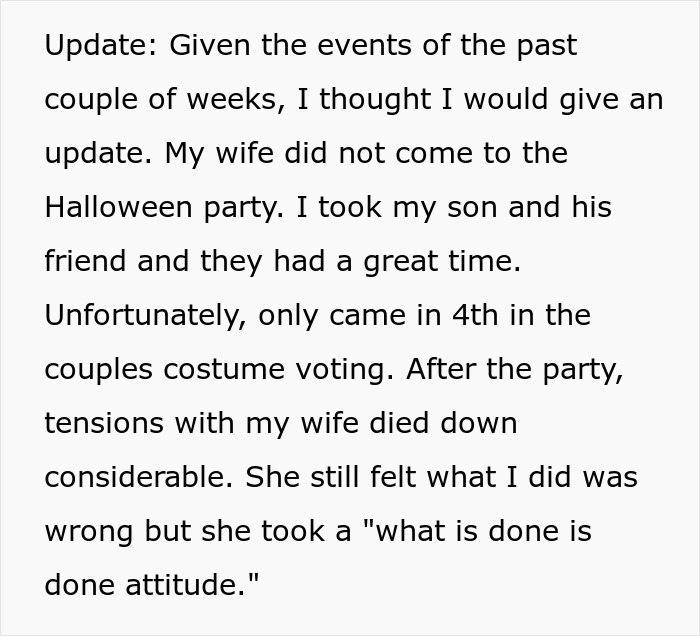
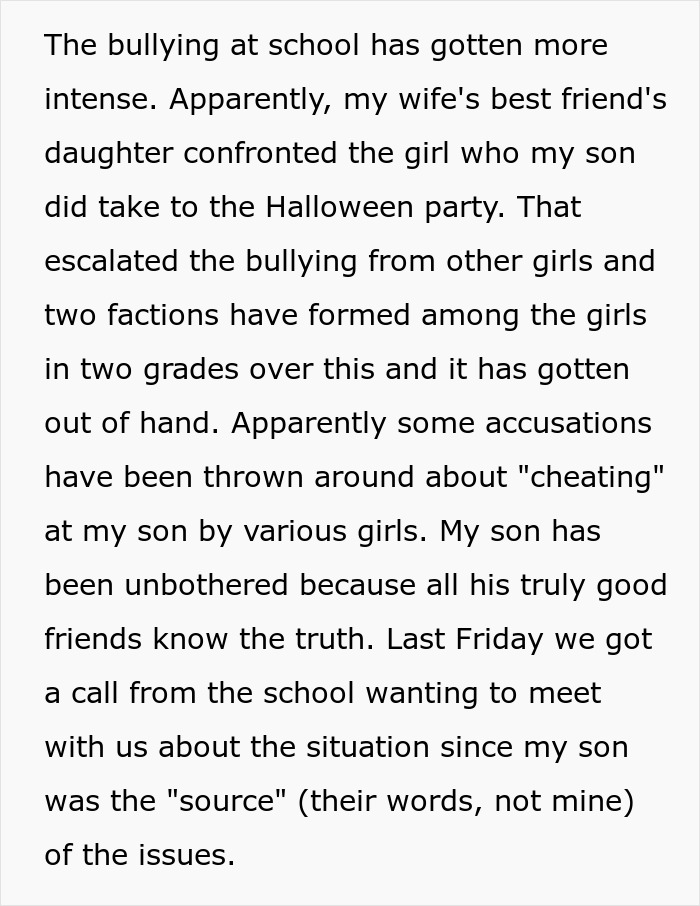
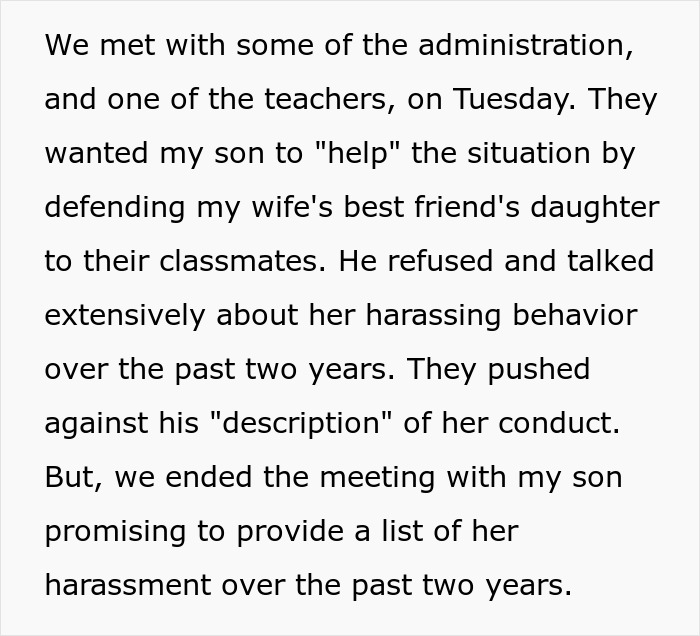
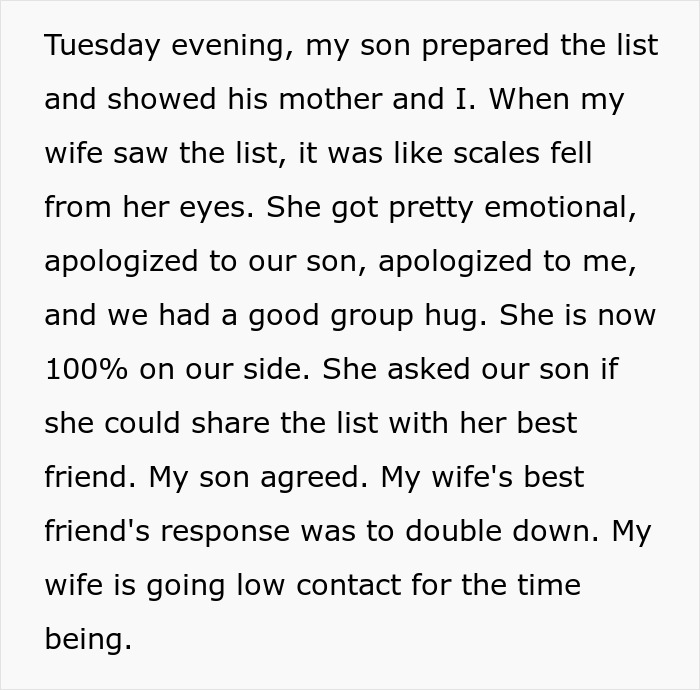
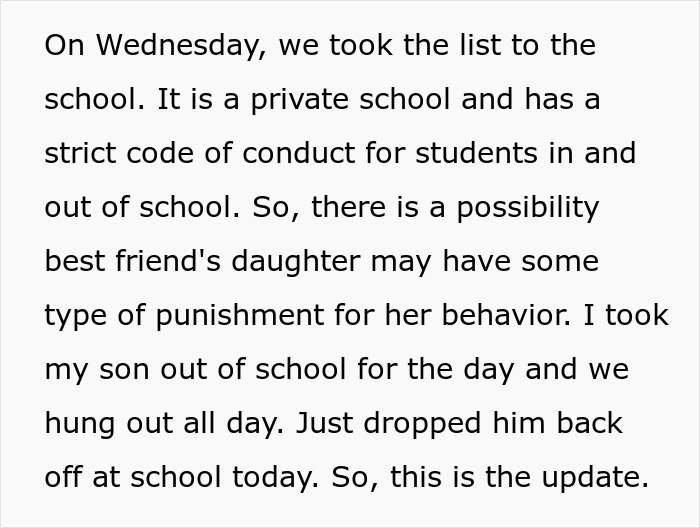
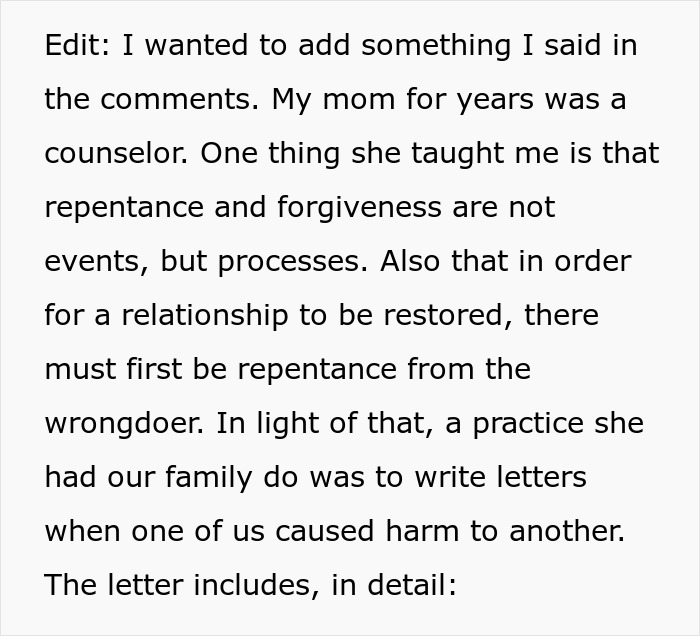
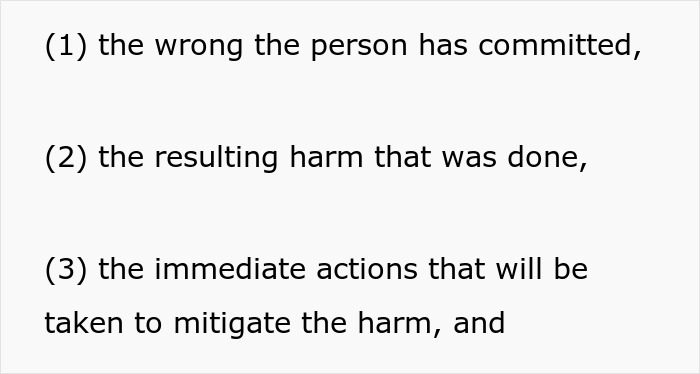

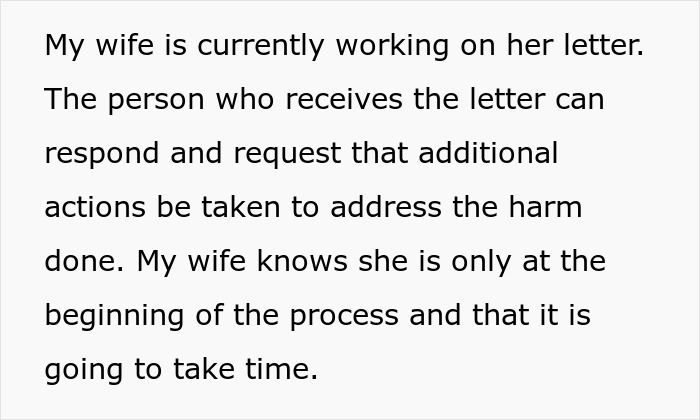
Image credits: Miserable-Article-44
“The letter is the first of many, many steps,” the author clarified and added more context to the update
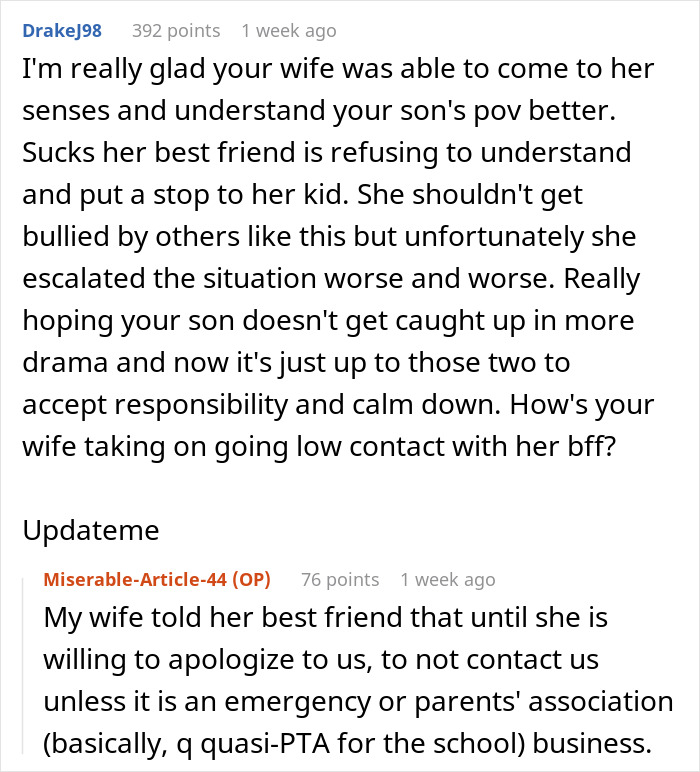
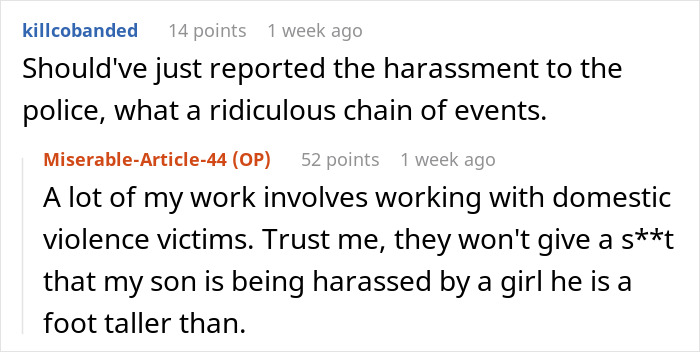
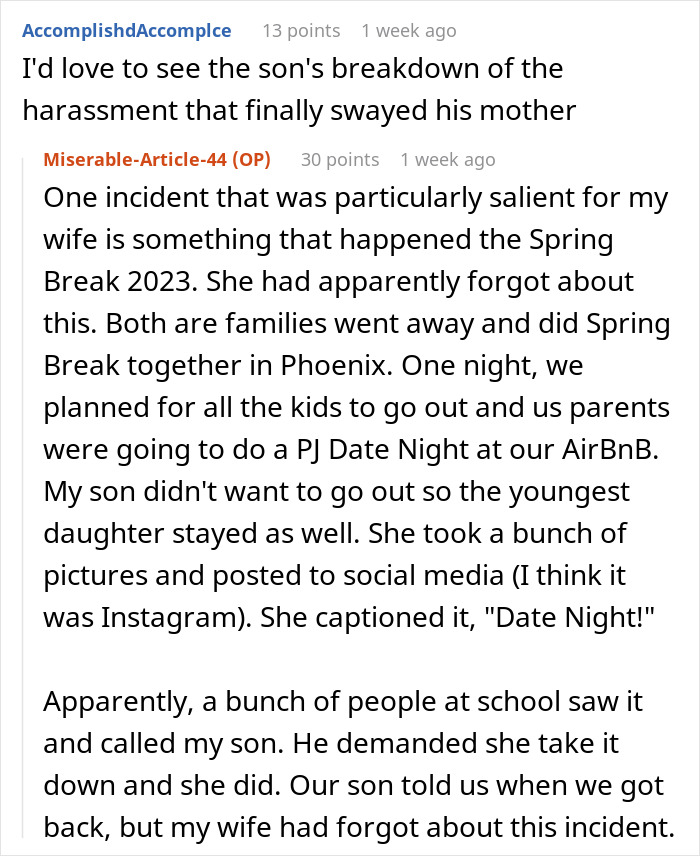
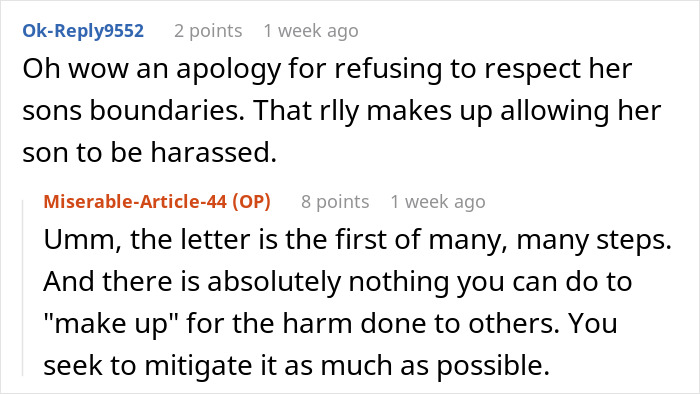
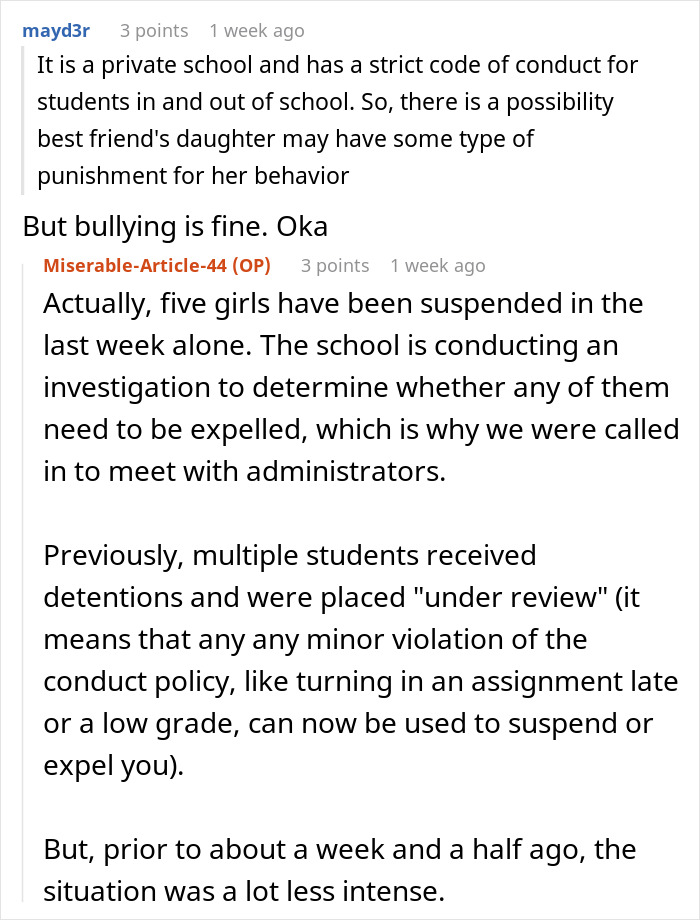
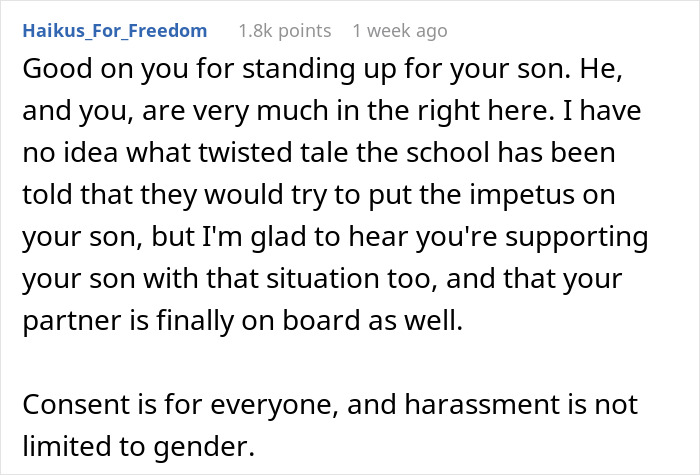












 English (US) ·
English (US) ·